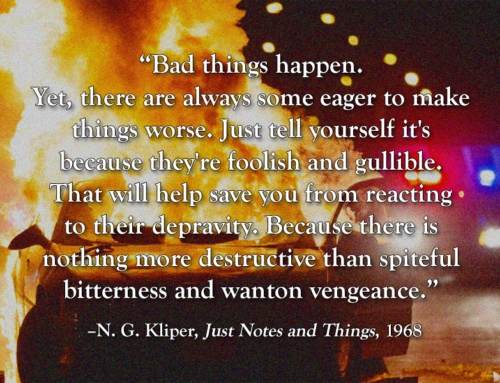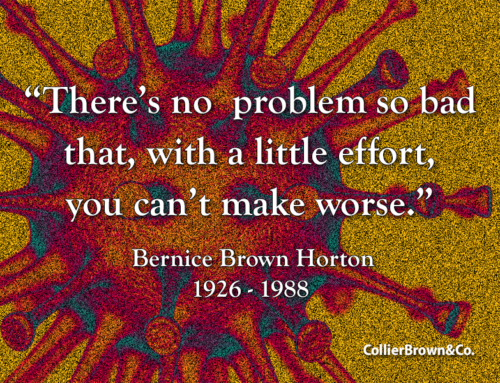Or not.
At least one organization (the Economic Cycle Research Institute, ECRI) with an exceptionally good track record says another recession may already be here. Over the last 15 years, it has gotten all of its recession calls right, while issuing no false alarms. Whatever the case – weak economy, recession, improving economy – your business probably needs to be better prepared. For the past several years, American businesses have acclimated themselves to a languishing economy. What if things are about to get better; are you ready for the rigors of up-tempo business? What if ECRI is right? Their forecast is frightening: as bad as the economy has been, it’s about to get worse.
Since the beginning of 2008 most businesses I’m familiar with have, necessarily, done a very good job on the expense side of their balance sheet. These business leaders have become what strategist Gary Hamel called “denominator managers.” They have been able to “downsize, declutter, delayer, and divest” exceptionally well. It’s a great shortcut to asset productivity. Don’t misunderstand, I’m not against improved productivity. However, it’s virtually impossible to “cut” your way to the revenue growth necessary to get you to the future first.
Perhaps the much needed growth in your business can be found in your industry’s best practices. Following the same path as everyone else in your industry – benchmarking yourself against your competitors – will only ensure that you’re doing pretty much what they’re doing.
Six steps to a better future
- Look for major shifts in the basis of competition in your industry.
- Evaluate and transform your business model (basis for competition, value creation, and value capture) accordingly.
- Start with your customers and their wants and needs as you redevelop, tweak, or completely rebuild your business model.
- Re-consider your primary business clarity issues (What business are we in? Who do we serve? Why do they do business with us? How does profit happen here? What are we – management and employees – willing to hold one another accountable for? What is our strategic intent? Why do we do what we do?) and how well everyone in the firm understands those issues and what it all means to them perennially.
- Be prepared to cannibalize your present in order to reach your future. As speaker and author Zig Ziglar said, “If you do what you’ve always done, you’ll get what you’ve always had.”
- Don’t overlook strategic alliances (technology helpers, velocity enhancers, market expanders, etc.) to help you gain traction, speed, and distance relative to your competitors.
Today’s reality of tight credit, increasing government regulations, excessive debt, and economic uncertainty makes things difficult
In Other Words…
“Simply pushing harder within the old boundaries will not do.” – Karl Weick
“It ain’t what you don’t know that gets you into trouble. It’s what you know for sure that just ain’t so.“ – Mark Twain
“The ultimate judge of your swing is the flight of the ball.” – Ben Hogan
“There’s nothing in the middle of the road but yellow stripes and dead armadillos.” – Jim Hightower
“The greatest enemy of knowledge is not ignorance, it is the illusion of knowledge.” – Stephen Hawking
“A moments insight is sometimes worth a life’s experience.” – Oliver Wendell Holmes
In The Word…
“The wise store up knowledge, but the mouth of a fool invites ruin.” Proverbs 10:14








As usual you are right on target! Wonderful information!